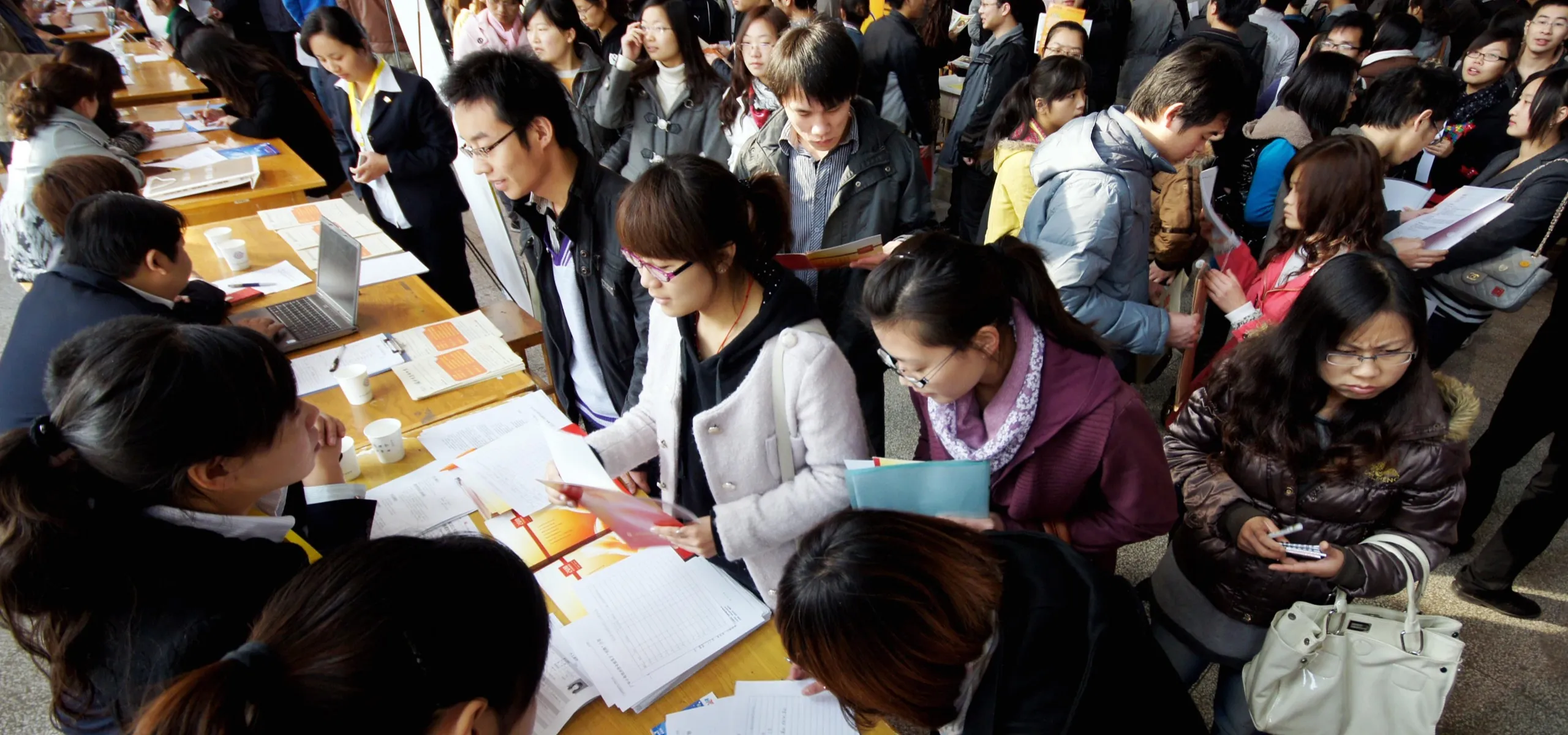China’s record number of new graduates seek employment or further study by any means
Hao Yijun had put off the moment for as long as she could, but it was finally time to take the plunge. In 2019, instead of entering the workforce after her bachelor’s degree, she’d started a master’s program at Shanghai International Studies University for “a sense of security.” But with another graduation imminent this year, she was faced with a decision: either accepting a job offer from a foreign company trading in consumer goods, or becoming a public school teacher.
This situation is hardly unique—ever since China introduced market reforms in the 1980s, generations of students have had to make a choice between the public and private sector, with youngsters usually attracted to the fast-paced, highly paid environment of the latter while their parents preferred the stability of the former. Yet for new graduates this year, this calculus has never been so fraught with risk, and is being turned on its head: Many are seeking the most stable job possible, or any job at all.
As of May this year, the unemployment rate for workers aged 16 to 24 is at 18.4 percent, the highest proportion since authorities began publishing that data in 2018, and up from 14.3 percent in December last year. Covid restrictions have curtailed economic growth in some of China’s biggest cities, including Shanghai, while China is seeing a record number of 10.76 million graduating university and college students this year.
Hao, who wished to use a pseudonym for this story, tells TWOC she eventually gave up the job offer from the private sector, even though it was more highly paid. “There has been a lot of news about layoffs, so if you go to a private company you have to accept that you’ll be moving jobs; it’s difficult to stay in a company for life. Working within the ‘system’ is still relatively stable,” she says, referring to the public sector, and stressing again that it gave her “a sense of security.” According to a report by recruitment platform Zhaopin published last month, 54 percent of this year’s graduates want a job in the public sector, compared to 40 percent in 2019.
Others are seeking refuge in further study, even outside China’s borders. Grace Gao is graduating from her undergraduate course at Tianjin Foreign Studies University, but instead of accepting a full-time post at an artificial intelligence company in Beijing, where she is currently completing an internship, she intends to go to Malaysia to get a master’s degree in September. “Originally, I just wanted to work after graduation,” Gao tells TWOC, but “I feel like all the good, valuable jobs were taken already last autumn…most companies now also ask people for experience abroad.”













